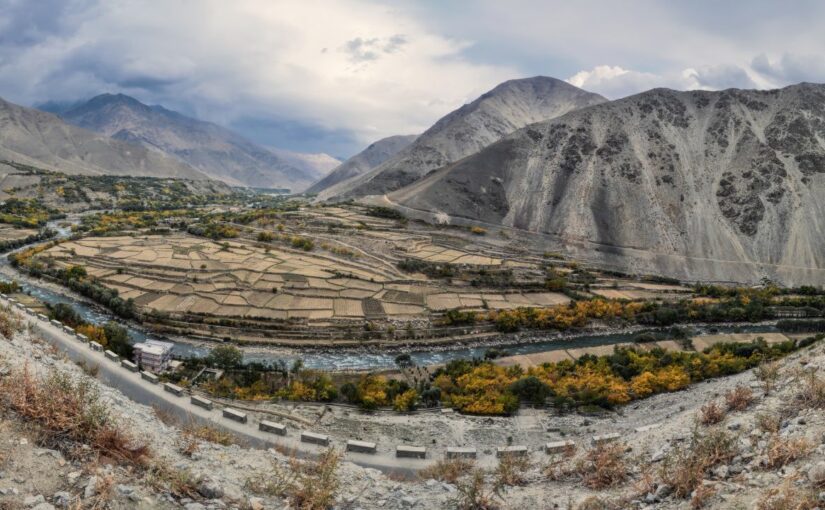Cover photo credit: Canva
By: Sahar Khan
The Taliban are back in power in Afghanistan after taking Kabul last week. Afghan President Ashraf Ghani has fled and landed in Dubai. While the Taliban’s offensive has been going on for months, it recently acquired a momentum that has startled the world. President Joe Biden stood firmly by his decision to withdraw troops, stating that the United States had achieved its core goals over a decade ago, which were to 1) dismantle al Qaeda and 2) find Osama bin Laden. He did, however, admit that Afghan security forces fell more quickly than anticipated.
The Taliban have been steadily gaining ground for the last few years. The collapse of the Afghan security forces is due to a myriad of reasons, such as a lack of capacity, corruption, competing security forces (backed by the CIA no less), and a lack of resources. US intelligence also warned the Biden administration of the potential for collapse. Yet, none of that really matters now. The Afghan people are fleeing for their lives as their country falls apart and the airports become war zone-like. Now, many are looking more closely at Pakistan, which houses approximately 3 million Afghan refugees, with more refugees trying to come in.
Implications for Pakistan
Pakistan’s involvement in Afghanistan dates back to the Soviet invasion, when the country’s intelligence agency and the CIA provided covert support to the Mujahideen (Islamic guerilla fighters) who were fighting the Soviets. The Mujahideen movement gained popularity in an unstable post-Soviet era and eventually became the Taliban. Pakistan recognized the Taliban as the government of Afghanistan in 1996. After the US invaded Afghanistan in 2001, Pakistan provided sanctuary to Taliban leadership, the Haqqani Network, and other militant groups, all of which has been documented in the works of foreign policy journalist, Ahmad Rashid, politics and national security writer, Steve Coll, and international relations professor, Hassan Abbas, to name a few.
Yet, Pakistan has repeatedly said it supports an Afghan-led peace process. The Afghan peace process roughly began when the Taliban and Donald Trump administration signed a deal in February 2020 and continued — albeit slowly — with talks between the Taliban and Afghan government.
Similarly, the US-Pakistan relationship has been rocky for some time. The US accuses Pakistan of playing a double game by sponsoring and harboring militant groups like the Taliban and Haqqani Network. While the US accuses Pakistan of not supporting its war in Afghanistan, Pakistan accuses the US of always using it and refusing to acknowledge the sacrifices it has made since the Global War on Terror began in 2001. Pakistan paid a high price for being a US ally in the form of civilian casualties and drone strikes. However, Pakistan maintains that its leverage over the Taliban, which the US perceives as being powerful, is actually not as strong. Ghani’s government also asked Pakistan to bring the group to the negotiating table and reduce the brutality of its offensive operations.
Prime Minister Imran Khan says it is unfair to blame Pakistan for the situation in Afghanistan. Unfair or not, if Pakistan refuses to condemn the Taliban’s ongoing violence, it may permanently damage its own reputation on the world stage along with the economic pivot it’s desperately working on. Putting aside morality, it is also in Pakistan’s strategic interest to openly condemn the way the Taliban have come into power. Pakistan has been trying to show the world that it is not as closely aligned with the Taliban as it used to be in the 1990s, and that it does not control the group in any way. If that is really the case, the Khan administration has an opportunity to highlight this changed dynamic between Pakistani authorities and the Taliban.
What the Taliban Want
The Taliban want international recognition — and in their quest to get it, the group has been busy presenting a moderate image of itself, stating that it will allow women to work and girls to attend schools. For the Taliban, recognition is extremely important as it would allow the group to have sovereignty over Afghanistan, though that sovereignty comes with the obligation to obey international law. For example: The Taliban would have to respect human rights, abide by international trade laws, give up their various illicit activities, and be open to diplomacy. Whether the Taliban wants to do any of this (and more) is unclear.
The key question is: Will the international community recognize the Taliban? The answer is not so simple.
Russia stated that its recognition of the Taliban will depend on the conditions on the ground. Russia’s main strategic goal after all is to ensure that the instability from Afghanistan stays away from Central Asia and its doorstep, a desire that is shared by Afghanistan’s neighbors. Similar to Pakistan, Uzbekistan, Tajikistan, and Turkmenistan are all worried about spillover effects and instability caused by the influx of refugees — during a pandemic no less. Iran is also wary of a Taliban takeover, which is notoriously anti-Shia. China has been a little more forthcoming by stating that it is open to having “friendly relations” with the Taliban. Pakistan has not officially recognized the Taliban either, but is laying the groundwork to do so.
For now, things are moving too quickly to accurately predict what will happen in Afghanistan. But one thing is clear: Innocent Afghans are paying the ultimate price.
Sahar is a research fellow in the defense and foreign policy department at the Cato Institute. Her research interests include state‐sponsored militancy/terrorism, counterterrorism policies, anti‐terrorism legal regimes, and private military and security contractors. She focuses on US foreign policy in South Asia and Africa. She is also an editor at Inkstick Media. You can find her @khansahar1 on Twitter.




